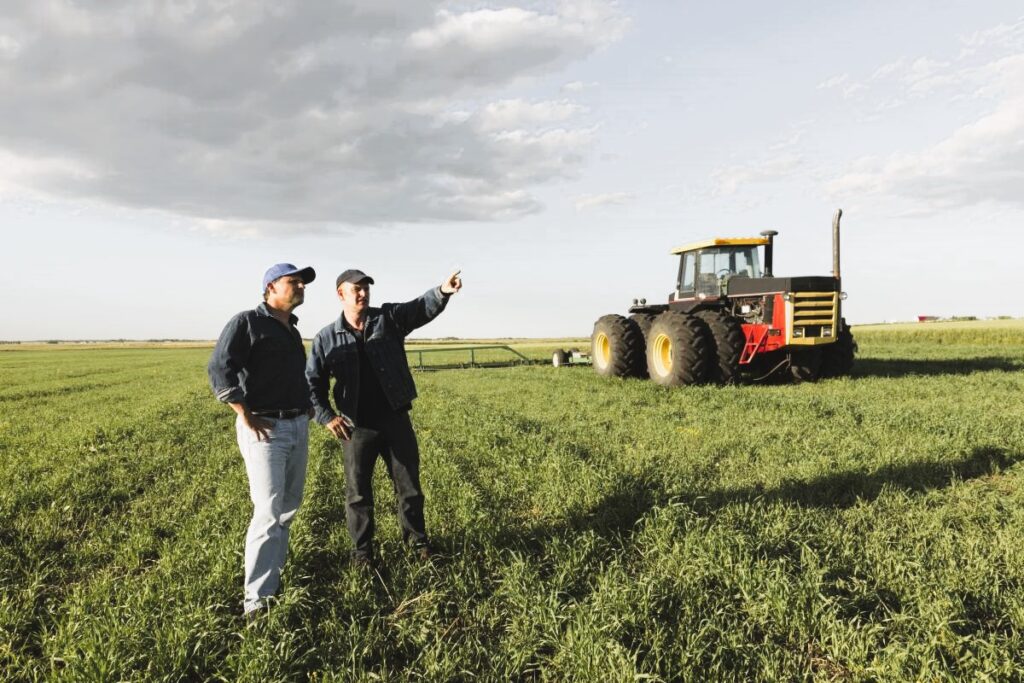Managing a private farm is a complex and rewarding endeavor that requires a unique blend of skills, knowledge, and dedication. Whether you’re a seasoned farmer or new to agricultural pursuits, mastering the art of farm management is essential for the success and sustainability of your farm. In this article, we will explore expert advice and best practices that can help you navigate the intricacies of running a private farm effectively.
Know Your Farm’s Vision and Goals
Every successful farm begins with a clear vision and well-defined goals. Before delving into day-to-day operations, take the time to understand what you want to achieve with your farm. Are you primarily focused on organic produce, raising livestock, or providing agritourism experiences? Defining your farm’s purpose will guide your decisions and direct your efforts towards achieving your long-term objectives.
Consider factors such as the scale of the operation, the type of crops or livestock, and the target market. A well-thought-out vision provides a solid foundation for effective farm management.

Understand Your Land and Resources
Knowing your land is fundamental to effective farm management. Conduct a thorough analysis of your soil quality, water sources, and the natural conditions of your farm. Understanding the land’s limitations and strengths will help you determine the most suitable crops to grow and the best practices for sustainable farming.
Assess your available resources, including machinery, equipment, labor, and financial capital. Efficient resource management ensures that you optimize productivity and minimize waste.
Implement Sustainable Farming Practices
Sustainability is a core principle of modern farm management. Adopting sustainable practices benefits the environment, enhances the long-term viability of your farm, and improves your farm’s reputation in the market.
Explore techniques like crop rotation, cover cropping, and integrated pest management to promote soil health and reduce the reliance on chemical inputs. Implement water-efficient irrigation systems to conserve water resources and prioritize conservation efforts to protect biodiversity on your farm.
Invest in Infrastructure and Technology
Investing in farm infrastructure and appropriate technology is vital for streamlining operations and increasing efficiency. This includes essential infrastructure such as barns, sheds, fencing, and storage facilities to protect your crops and livestock. We have prepared proven farm management strategies for you, read more in the article “Farmer’s Handbook“
Additionally, consider adopting agricultural technology and equipment that can enhance productivity and data-driven decision-making. Tools such as precision agriculture, GPS-guided machinery, and farm management software can revolutionize your farm’s efficiency and profitability.
Establish a Comprehensive Business Plan
A well-structured business plan is crucial for effective farm management. Your plan should include detailed financial projections, marketing strategies, production goals, and risk management measures.

A comprehensive business plan not only serves as a roadmap for your farm’s success but also helps secure financing, attract investors, and make informed decisions during uncertain times.
Prioritize Crop and Livestock Diversity
Diversifying your crops and livestock is a strategic approach to farm management. Growing a variety of crops reduces the risk of complete crop failure due to adverse weather conditions or pest outbreaks. Additionally, diverse crops promote soil health, improve pollination, and enhance the overall ecosystem on your farm.
Raising multiple types of livestock can also provide a balanced and sustainable approach. Livestock diversity can optimize manure management, reduce disease risks, and offer multiple income streams for your farm.
Focus on Marketing and Branding
Successful farm management involves effective marketing and branding strategies. Building a recognizable and trustworthy brand helps establish your farm’s reputation and attracts customers.
Consider marketing through farmers’ markets, community-supported agriculture (CSA) programs, online platforms, or local grocery stores. Engaging with your customers and sharing the story behind your farm can create a loyal customer base and foster a sense of community around your brand.
Continuously Learn and Adapt
The agricultural industry is dynamic, with new technologies, best practices, and market trends continually emerging. As a farm manager, staying informed and continuously learning is essential for staying competitive and thriving in the industry.
Attend workshops, seminars, and conferences to keep up with the latest developments in agriculture. Engage with other farmers and agricultural experts to exchange knowledge and experiences. The ability to adapt to changing conditions and embrace innovation is key to successful farm management.
Invest in Workforce and Family Support
Managing a private farm is often a family affair, and the support of a dedicated workforce is invaluable. Prioritize the well-being and skill development of your farm team, whether they are family members or hired employees. A motivated and well-trained workforce enhances productivity and fosters a positive work environment.
Encourage open communication and collaboration among your team to ensure that everyone is aligned with the farm’s goals and values. Regularly review and reward their efforts, fostering a sense of ownership and pride in the farm’s success.
Stay Compliant with Regulations and Standards
Farm management includes complying with various regulations, standards, and certifications. Familiarize yourself with local, state, and federal agricultural regulations, environmental standards, and food safety requirements.

Adhering to these regulations not only ensures the legality of your operations but also demonstrates your commitment to responsible and ethical farming practices. Compliance with quality and safety standards can open up new market opportunities and increase consumer trust in your farm products.
Conclusion
The art of managing a private farm requires a multifaceted approach that encompasses strategic planning, sustainable practices, investment in infrastructure, and marketing savvy. Understanding your farm’s vision, knowing your land, and embracing sustainable farming practices create a solid foundation for successful farm management.
Investing in infrastructure and technology, prioritizing crop and livestock diversity, and focusing on marketing and branding contribute to increased productivity and profitability. Continuous learning, investing in workforce support, and staying compliant with regulations demonstrate your commitment to excellence in farm management.
By incorporating these expert advice and best practices, you can cultivate a thriving and fulfilling farm that not only sustains your family but also contributes positively to the community and the environment.
Links:



